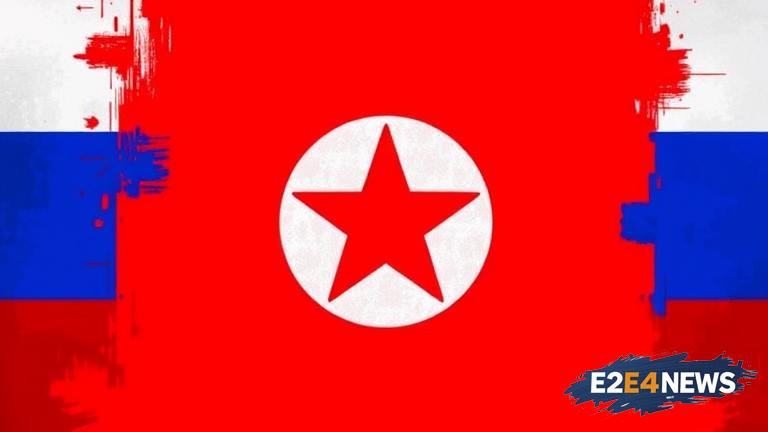Russia has issued a warning to the United States, South Korea, and Japan, advising against the formation of a security alliance that targets North Korea. This warning comes amidst rising tensions in the region, with North Korea’s recent missile tests and nuclear program developments sparking concern among neighboring countries. The Russian government has expressed concerns that such an alliance could lead to destabilization in the region, potentially escalating the situation and leading to unpredictable consequences. The warning was issued by the Russian Foreign Ministry, which emphasized the need for a peaceful resolution to the tensions on the Korean Peninsula. The ministry also called for a return to diplomatic negotiations, citing the importance of finding a mutually acceptable solution. The US, South Korea, and Japan have been discussing the possibility of forming a security alliance to counter the growing threat posed by North Korea’s military capabilities. However, Russia’s warning suggests that such a move could be met with opposition from other major world powers. The situation on the Korean Peninsula remains volatile, with North Korea’s leader, Kim Jong-un, continuing to pursue his country’s nuclear ambitions despite international pressure to abandon the program. The US, South Korea, and Japan have been working together to strengthen their military cooperation, including conducting joint military exercises and sharing intelligence. Nevertheless, Russia’s warning highlights the complexities of the situation and the need for careful consideration of the potential consequences of any actions taken. The Russian government has long been a key player in regional diplomacy, and its warning is likely to be taken seriously by the international community. As the situation continues to unfold, it remains to be seen how the US, South Korea, and Japan will respond to Russia’s warning. The formation of a security alliance targeting North Korea could have significant implications for regional stability, and it is likely that the issue will be the subject of intense diplomatic discussions in the coming weeks and months. The international community is watching the situation closely, with many countries calling for a peaceful resolution to the tensions. The United Nations has also been involved in efforts to find a solution, with the Security Council passing numerous resolutions aimed at curbing North Korea’s nuclear program. Despite these efforts, the situation remains unresolved, and the threat posed by North Korea’s military capabilities continues to be a major concern for the international community. In recent years, North Korea has made significant progress in developing its nuclear and missile capabilities, prompting concerns that it may soon be able to strike targets in the US and other countries. The US, South Korea, and Japan have been working together to develop a strategy to counter this threat, including the deployment of missile defense systems and the conduct of joint military exercises. However, Russia’s warning suggests that any actions taken must be carefully considered to avoid escalating the situation. The Russian government has also been critical of the US’s decision to deploy the THAAD missile defense system in South Korea, citing concerns that it could be used to target Russian territory. The situation is complex, with multiple countries and interests involved, and it is likely that a solution will require careful diplomacy and negotiation. As the international community continues to grapple with the challenge posed by North Korea’s nuclear program, it is clear that a peaceful resolution will require the cooperation and engagement of all major world powers.
